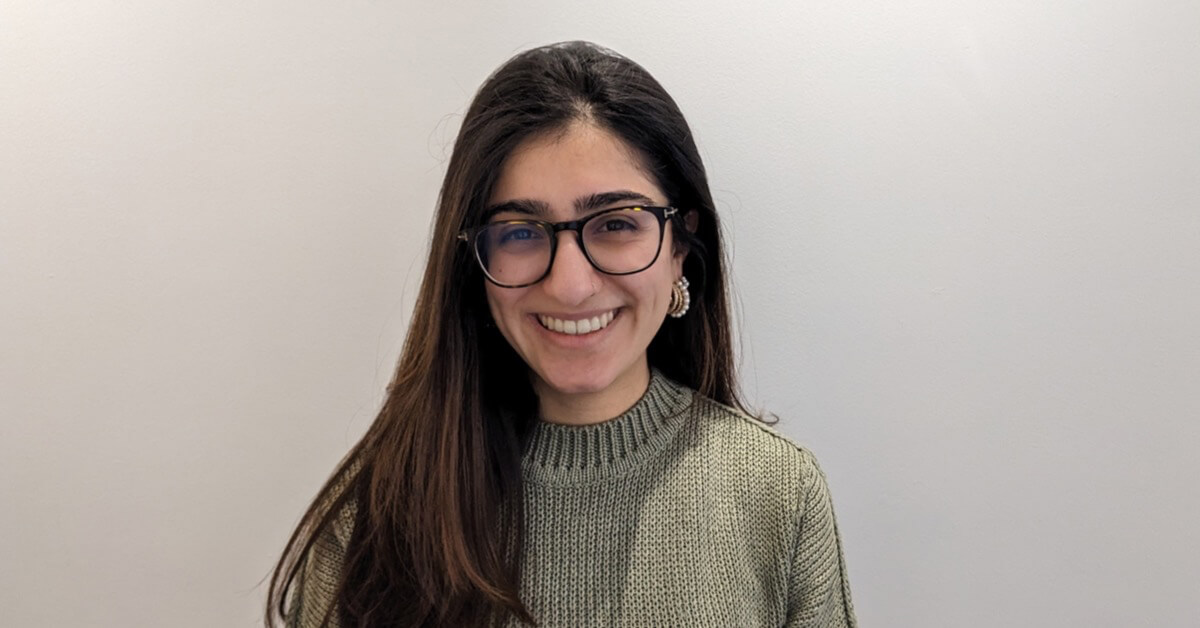Sonali Pabari has developed her skills by testing the waters and coming out of her comfort zone whilst on the digital experience graduate scheme. She’s got the opportunity to work with different teams across digital and find out which part of her role she truly enjoys the most.

What made you opt for a graduate scheme with us?
I graduated in 2018 and my first job was working for two news publishers. I took the opportunity to work in two different roles: digital data analyst and a campaign manager focusing on adverts on the site. Through this I was introduced to the world of digital and wanted to explore it further. I then came across the Digital Experience graduate scheme with BT Group. It offered three, eight-month rotations where I could work in different areas of the business and different parts of digital. I thought this would be a good way to see what other opportunities are available, to learn new skills and find an area I’m passionate about.
You’ve been on the graduate scheme for two years as a Digital experience grad, what has been your biggest learning curve?
The biggest learning curve for me has been learning about the various parts of digital and hearing about roles and areas I’ve not heard before. From my previous rotation, I also learnt how to work in an agile environment. I adapted and was taught how to work in squads and sprints. For my current rotation I have had to put myself out there and be more present and vocal in meetings. Previously I kept myself behind the scenes and was just focused on getting the work done. I am now in contact with several squads and taking on their requests. I can also lead meetings where necessary. This was a big learning curve for me as it pushed me out of my comfort zone.
What kind of projects are you involved in?
Currently, my rotation is within the User Research team where I focus on carrying out research for Plusnet. I have been involved in various forms of research from the beginning. From carrying out research on improving the Help & Support page on the website, to asking Plusnet customers what they would expect to see in loyalty schemes.
Now I am involved in testing prototypes. We focus on user needs and pain points that we have found through testing and have collaborative sessions with the squad to act upon those. I have also been involved in setting up pilot research courses with the team to involve other colleagues in different areas of digital. This is where we go through the basics of user research and get different squads to conduct their own research. This is so we can become advocates for each other’s tribes and squads.
Your role is focused on user research and customer behaviour, why is this important when it comes to developing products and services?
Through this role, I have learnt how important user research is within a company. It helps to understand our users and their needs and why it is important to the customer. This is especially significant as the site and the products are for the customer who are at the receiving end. User research is also there to help identify pain points. This is defined as where the user has had any frustrations or any blockers stopping the user from moving on. We can test any hunches or hypotheses and understand the users’ motivations when visiting the site too, relating to customer behaviour; as this can constantly change, doing user research and iterating our services is vital for developing products and services.
What opportunities have you had since joining the scheme?
I am grateful to have had the chance to be involved in various opportunities in the scheme so far. In my first rotation, I was able to work on two different CMS’s and work on updating parts of the website. As mentioned before, I was able to host the pilot research course alongside the user research team. During the same rotation, I was a part of the opening of our London Labs where we have can do in person research. For my next role I’ll be with the Accessibility team. This is where I’ll gain opportunities to work alongside other members in digital and have an overview of all three BT Group sites. I will be involved on how the website is made to be accessible to all. Lastly, I am also able to be take part in workshops where different teams provide various courses in digital.
What are you hoping to achieve by the end of your graduate scheme?
By the end of the graduate scheme, I am hoping to find what are I would like to go into specifically once I roll off. For now, I am going to keep learning and using this time to ask questions. Making the most of the experience and opportunity I have been given.

